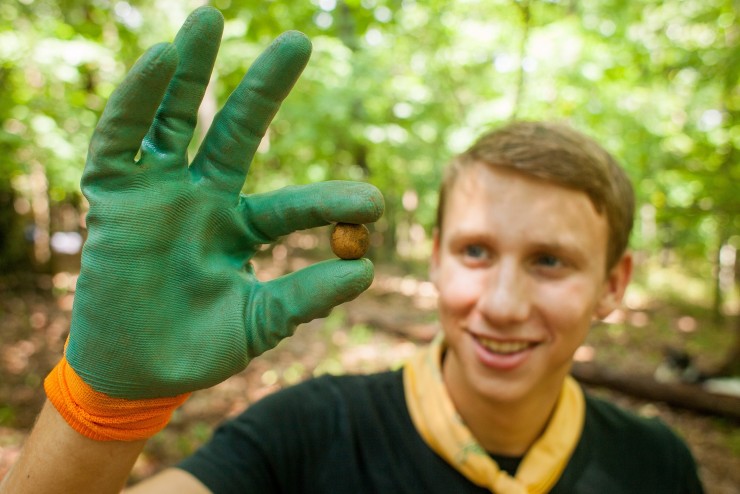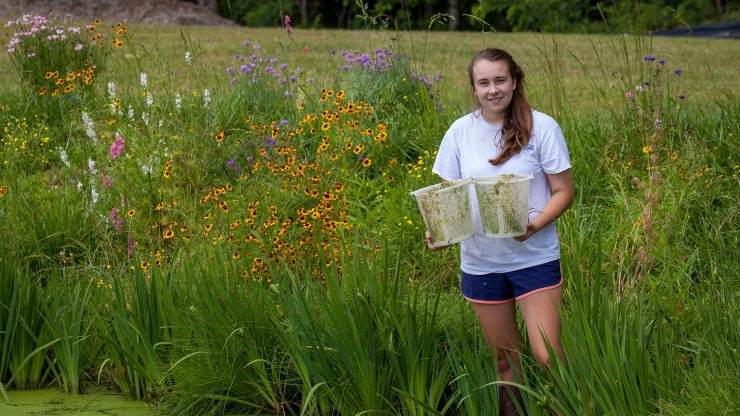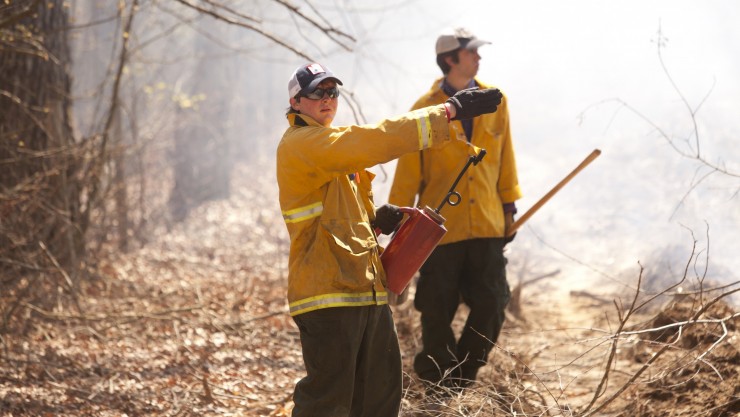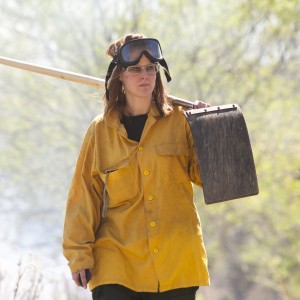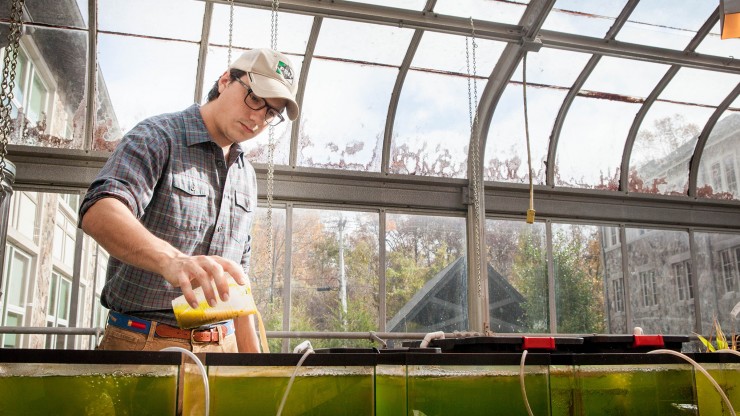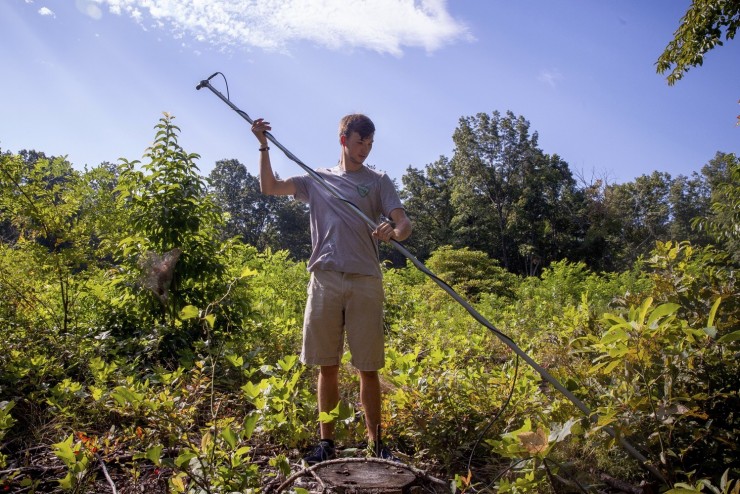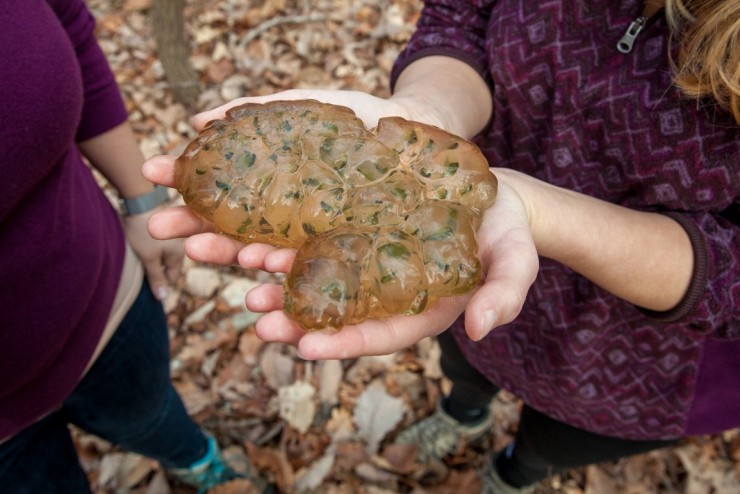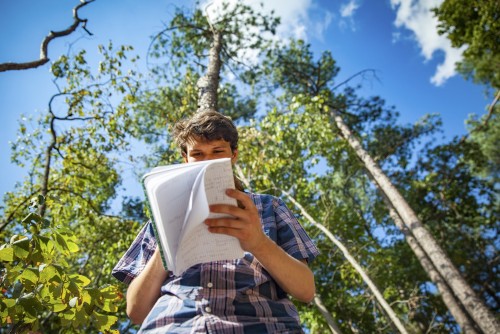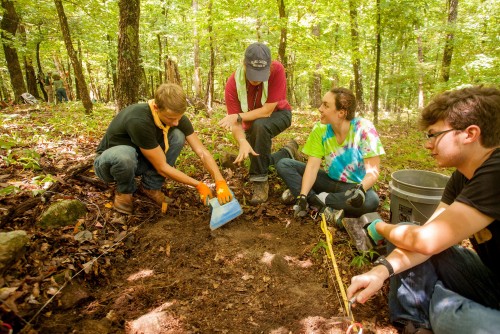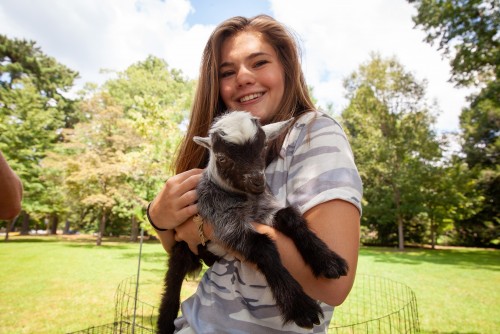Students and professors in a variety of disciplines take advantage of Sewanee’s local ecology to engage in water and water-systems research that is as deep as it is wide.
“The important thing to remember is that we are at the top of the watershed,” says Ken Smith, assistant dean of environmental programs. “That means our drinking water is about as clean as you can get, and also that we can measure what we do to that water at the municipal scale and get insights that researchers in other areas cannot. What happens here matters here, but it also matters elsewhere. We are starting to understand that better every day.”
Several years ago, Smith, along with colleagues Karen Kuers and Martin Knoll, put together a watershed science certificate, which now also involves Assistant Professor Keri Watson, and Biehl Professor in Biology Deborah McGrath. Along with Amy Turner, director of the Office of Environmental Stewardship and Sustainability, Rob Bachman in chemistry, and several colleagues in biology, Sewanee professors and their students are exploiting the local ecology to produce an ever more robust understanding of the fate of water.
